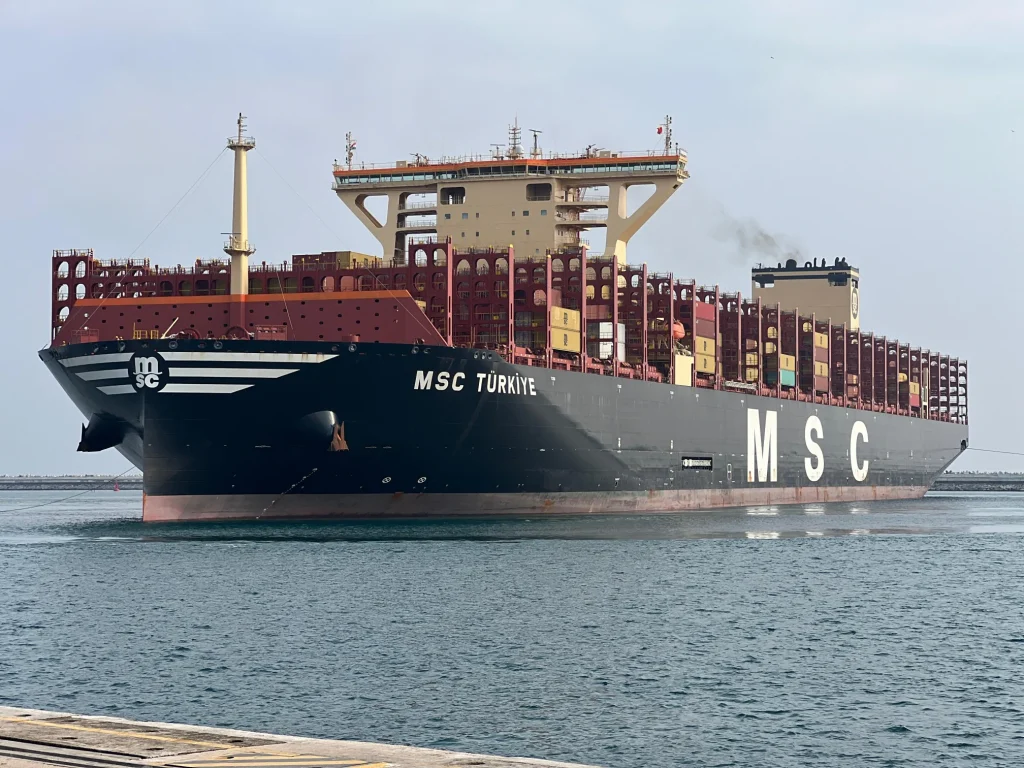MSC Türkiye, one of the world’s largest and most fuel-efficient container ships, docked at the Vizhinjam International Seaport in Kerala for the first time. The port is operated by Adani Ports and SEZ Ltd (APSEZ).
Boost to Vizhinjam’s Global Standing
The arrival of MSC Türkiye is considered a significant achievement in India’s maritime sector. It strengthens Vizhinjam’s position as an emerging global transshipment hub capable of handling ultra-large container vessels (ULCVs).
Vessel Specifications and Capacity
Operated by the Mediterranean Shipping Company (MSC), MSC Türkiye measures 399.9 m in length, 61.3 m in width, and 33.5 m in depth. It has a cargo capacity of approximately 24,346 twenty-foot equivalent units (TEUs), making it among the largest container vessels ever constructed.
Focus on Sustainability
MSC Türkiye is noted for its eco-friendly design, prioritizing fuel efficiency and low environmental impact. It has a reduced carbon footprint per container, contributing to lower emissions per tonne of cargo transported. The vessel sails under the Liberian flag.

Progress at Vizhinjam Port
Vizhinjam port, which began operations in 2023 after being established in 2015, is central to APSEZ’s strategy to build a major global marine hub. In September 2024, MSC Claude Girardet, another large ULCV, also visited the port, though MSC Türkiye has now surpassed it in size and capacity.
Strategic Location and Capabilities
The port is India’s first deep-sea transshipment container terminal and is located just 10 nautical miles (19 km) from a key east-west shipping route. With a natural depth of 20 m, the port can handle the world’s largest vessels with minimal dredging. It features advanced automation and infrastructure to accommodate Megamax ships.
Expansion Plans
Vizhinjam’s Phase 1 has a handling capacity of 1 million TEUs, with an additional 4.5 million TEUs planned by 2028. The Adani Group has a 40-year agreement with the Kerala government for its development. Once fully operational, the port is expected to meet up to 50% of India’s container transshipment demand and reduce dependence on international ports like Colombo, Dubai, and Singapore.
